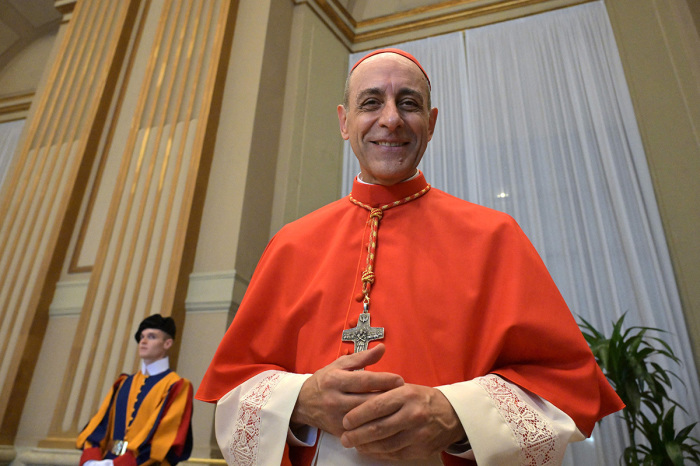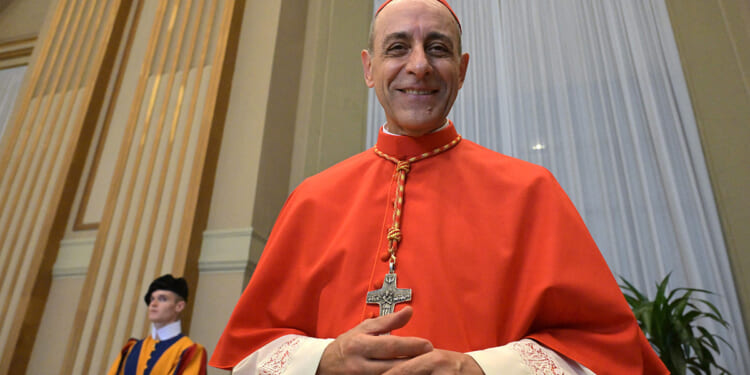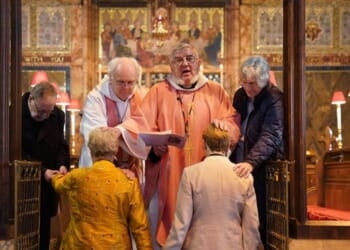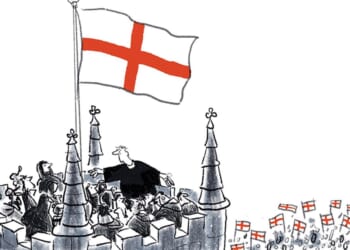
The Vatican has declared that alleged apparitions of Jesus Christ in France decades ago are “not supernatural” in nature, citing many inconsistencies with the instructions and pronouncements made by the apparitions and Catholic Church teaching.
In a document published last week, the Roman Catholic Church’s Dicastery for the Doctrine of the Faith informed the Bishop of the Roman Catholic Diocese of Bayeux-Lisieux in France that alleged apparitions of Jesus Christ in Dozule, France, reported in the 1970s are “not supernatural in origin.”
The apparitions are tied to the legend that Jesus appeared dozens of times in Dozule to Madeleine Aumont, a mother of five, between 1972 and 1978.
The letter follows a request from the French bishop for the Vatican to authorize him to issue a declaratio de non supernaturalitate, concluding that the alleged apparitions do not have “an authentic divine source.”
“The principal message associated with the alleged apparitions of Dozule includes the request to construct a luminous cross, designated ‘the Glorious Cross’ (la Croix Glorieuse), measuring [7.38] meters in height and visible from afar, as a symbol of universal redemption and a sign of the Lord’s Second Coming in glory,” wrote the Prefect for the Catholic Church’s Dicastery for the Doctrine of the Faith Cardinal Victor Manuel Ferandez.
“The alleged messages include exhortations to conversion, penance, and contemplation of the Cross — themes central to the Christian faith,” Fernandez added. “But the messages also raise some delicate theological questions that warrant clarification, lest the faith of the faithful be exposed to the risk of distortion.”
The alleged apparitions repeatedly compared the proposed cross to the city of Jerusalem, Fernandez notes, insisting that “That wood, raised upon Calvary, has become the real sign of Christ’s sacrifice, which is unique and unrepeatable.”
“For this reason, every other ‘sign’ of the cross — whether devout or monumental — cannot be considered on the same plane,” the prefect wrote. “Thus, it seems misleading, both theologically and pastorally-symbolically, to compare the ‘Glorious Cross’ of Dozule to the Cross of Jerusalem.”
A red flag, Fernandez stressed, is the alleged apparition’s proclamations that the “Glorious Cross” will “take away all sin.”
“For a sign of faith to be authentic, it must lead people to Christ, not draw attention to itself. The Cross of Jerusalem is the ‘sacrament of the saving sacrifice,’ whereas a monumental cross such as that of Dozule risks becoming ‘the symbol of an autonomous message,’ separated from the sacramental economy of the Church.”
“No cross, no relic, and no private apparition can replace the means of grace established by Christ,” Fernandez added.
His document expressed concern about the insistence that the “Glorious Cross” will “take away all sin” as well as the promise allegedly made in another apparition that “All those who will have come to repent at the foot of ‘the Glorious Cross’ [of Dozule] will be saved.'”
The Vatican leader stressed that the Catholic Church “teaches that forgiveness does not proceed from a physical location, but from Christ himself; the remission of sins is received through the sacraments — in particular, the Sacrament of Penance — and no material object can replace sacramental grace.”
Fernandez said the assertion made by the apparition is at odds with Catholic Church teaching that “the mere performance of an external act — such as visiting a particular place or touching a cross — is not in itself sufficient for the remission of sins.”
“Instead, what is required is interior repentance and the priest’s absolution, the visible sign of God’s forgiveness,” he wrote.
As highlighted throughout the letter, prior bishops of Bayeux-Lisieux have reached the same conclusion that the apparitions were not authentic. The letter comes after his office conducted an “in-depth examination of the phenomenon in question” in an attempt to “bring the entire matter to a conclusive resolution.”
A list of norms for proceeding in the discernment of alleged supernatural phenomena compiled by Fernandez last year states that “God is present and active in our history,” adding “the Holy Spirit can also reach our hearts through certain supernatural occurrences, such as apparitions or visions of Christ or the Blessed Virgin, and other phenomena.”
At the same time, the list of norms warned that some may claim to have seen apparitions of Jesus Christ to gain “profit, power, fame, social recognition, or other personal interest.”
Ryan Foley is a reporter for The Christian Post. He can be reached at: ryan.foley@christianpost.com

















